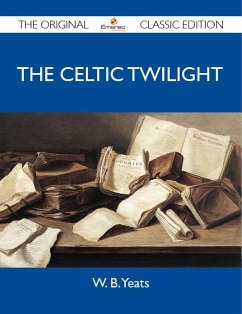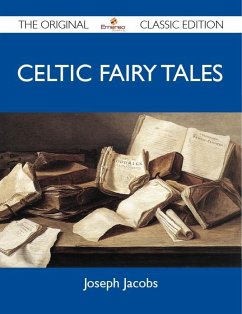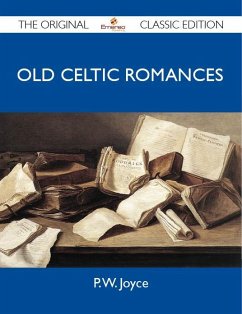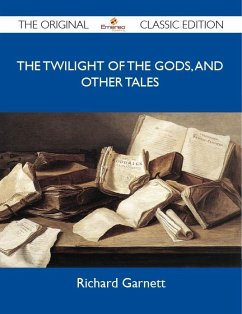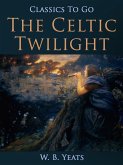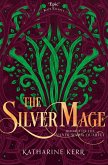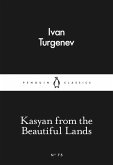In Celtic Twilight, originally published in 1902, Yeats recites several accounts of encounters with the faerie folk and with the people of Ireland of the time which gives us insight into Irish folklore, myth and legend.
Yeats associates poetry with religious ideas and sentiment. And, I believe that he saw himself as writing for Ireland, but a shadowy Ireland of Celtic mysteries and legends, not the Ireland of the modern day. By modern day, of course, I relate this to the modern day of Yeats in the late 1890s and early 1900s.
In the introduction to Celtic Twilight Yeats states; I have therefore written down accurately and candidly much that I have heard and seen, and, except by way of commentary, nothing that I have merely imagined. I have, however, been at no pains to separate my own beliefs from those of the peasantry, but have rather let my men and women, dhouls and faeries, go their way unoffended or defended by any argument of mine.
I got the strong impression from reading Celtic Twilight that Yeats actually believed in the existence of the faeries. Not just as some myth or legend, but as actual beings that exist in this world, though perhaps unseen by the common man. He wrote each story as if it was something that actually happened, having been related to him by the storyteller, or perhaps that which he had seen for himself in some past time, now recalled as he set pen to paper.
There is a depth to Yeats writing that lies just below the surface, something thats perceived more than seen. The idea that perhaps magic and the faerie folk are alive in the world of today, but unseen, or perhaps only seen from time to time as a fleeting shadow until one knows just where to look.
It is interesting to note that Yeats was heavily involved in occult studies and practices as part of the Madame Helene Blavatskys,Theosophical Society and later, the Hermetic Order of the Golden Dawn, and finally in 1912 the Ordo Templi Orientis.
This would have certainly influenced his outlook on life and his belief in, and dare we say ability to see the unseen things of this world.
I too ask myself from time to time; just what unseen things exist in this world. Perhaps Yeats has seen that which other men can only hope for, or that which they turn away from in dread given the course of their spirits.
Yeats also makes a profound observation: The things a man has heard and seen are threads of life, and if he pull them carefully from the confused distaff of memory, any who will can weave them into whatever garments of belief please them best.
I found Yeats observation of particular interest, especially when it comes to theological or philosophical thought. If it is those things that we hear and see in life that forms the fabric of our beliefs, then surely we must take care that that which we see and hear forms strong enough threads so that the fabric we weave is not shoddy.
Yeats works help us build those strong threads in our lives. For, he certainly influenced the world at large with his writings. In 1923 Yeats was awarded the Nobel Prize for Literature, and in 1934 he shared the Gothenburg Prize for Poetry with Rudyard Kipling.
Yeats associates poetry with religious ideas and sentiment. And, I believe that he saw himself as writing for Ireland, but a shadowy Ireland of Celtic mysteries and legends, not the Ireland of the modern day. By modern day, of course, I relate this to the modern day of Yeats in the late 1890s and early 1900s.
In the introduction to Celtic Twilight Yeats states; I have therefore written down accurately and candidly much that I have heard and seen, and, except by way of commentary, nothing that I have merely imagined. I have, however, been at no pains to separate my own beliefs from those of the peasantry, but have rather let my men and women, dhouls and faeries, go their way unoffended or defended by any argument of mine.
I got the strong impression from reading Celtic Twilight that Yeats actually believed in the existence of the faeries. Not just as some myth or legend, but as actual beings that exist in this world, though perhaps unseen by the common man. He wrote each story as if it was something that actually happened, having been related to him by the storyteller, or perhaps that which he had seen for himself in some past time, now recalled as he set pen to paper.
There is a depth to Yeats writing that lies just below the surface, something thats perceived more than seen. The idea that perhaps magic and the faerie folk are alive in the world of today, but unseen, or perhaps only seen from time to time as a fleeting shadow until one knows just where to look.
It is interesting to note that Yeats was heavily involved in occult studies and practices as part of the Madame Helene Blavatskys,Theosophical Society and later, the Hermetic Order of the Golden Dawn, and finally in 1912 the Ordo Templi Orientis.
This would have certainly influenced his outlook on life and his belief in, and dare we say ability to see the unseen things of this world.
I too ask myself from time to time; just what unseen things exist in this world. Perhaps Yeats has seen that which other men can only hope for, or that which they turn away from in dread given the course of their spirits.
Yeats also makes a profound observation: The things a man has heard and seen are threads of life, and if he pull them carefully from the confused distaff of memory, any who will can weave them into whatever garments of belief please them best.
I found Yeats observation of particular interest, especially when it comes to theological or philosophical thought. If it is those things that we hear and see in life that forms the fabric of our beliefs, then surely we must take care that that which we see and hear forms strong enough threads so that the fabric we weave is not shoddy.
Yeats works help us build those strong threads in our lives. For, he certainly influenced the world at large with his writings. In 1923 Yeats was awarded the Nobel Prize for Literature, and in 1934 he shared the Gothenburg Prize for Poetry with Rudyard Kipling.
Dieser Download kann aus rechtlichen Gründen nur mit Rechnungsadresse in A, D ausgeliefert werden.

